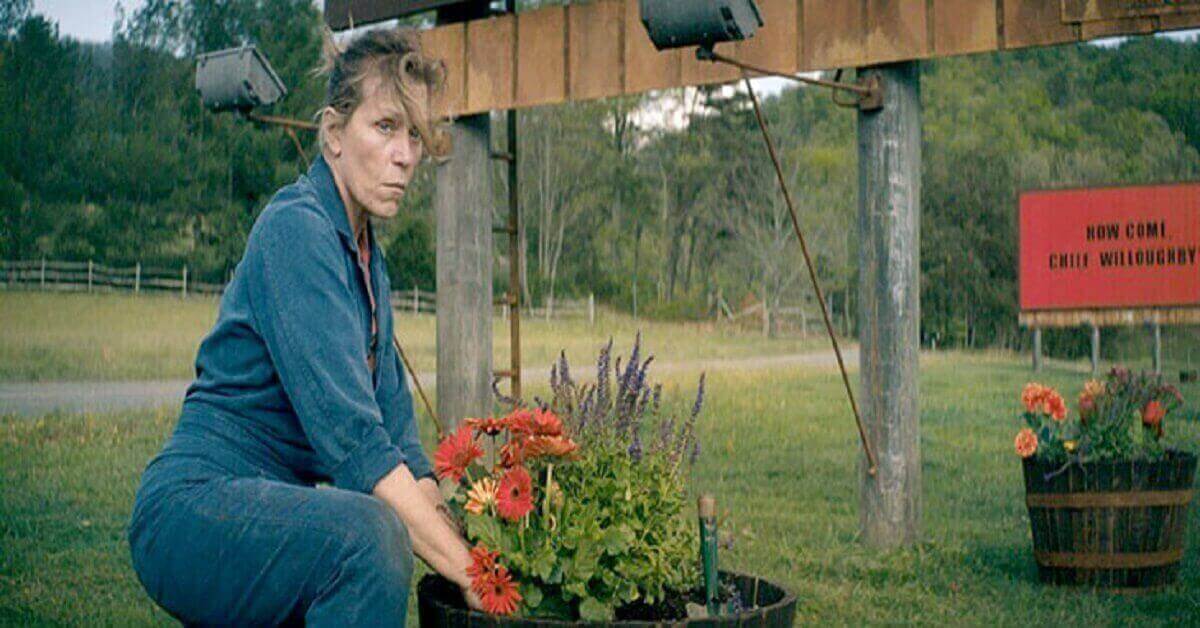
Recently “Three Billboards Outside Ebbing, Missouri” had won the British Academy Film Awards (BAFTA). Let’s take a quick look at film’s review.
Film: “Three Billboards Outside Ebbing, Missouri”; Director: Martin McDonagh; Cast: Frances McDormand, Woody Harrelson, Sam Rockwell, Abbie Cornish, Lucas Hedges, Zeljko Ivanek, Caleb Landry Jones, Clarke Peters, Samara Weaving, John Hawkes, Peter Dinklage, Sandy Martin, Amanda Warren, Brendan Sexton III, Kerry Condon, Kathryn Newton, Darrell Britt-Gibson; Rating: ***1/2
Director Martin McDonagh’s latest film, “Three Billboards Outside Ebbing, Missouri”, is a promising tale that begins with a flourish but loses its momentum at mid-point and peters out by the end.
It is, nevertheless, an emotionally honest film that navigates a difficult premise in unexpected ways to deliver a remarkable tragi-dramedy that makes you uncomfortable — yet allows you to sympathize with the protagonist.
Desperate situations call for desperate measures and that is what a grieving mother, Mildred Hayes, resorts to in this film.
Seven months after the rape and murder of her 19-year-old daughter, Angela, Mildred feels that the local police, lazy and racist, is doing nothing to investigate the case.
So she hires the three rarely-used billboards that are situated outside the eponymous town from an advertising agency and puts up three red hoardings with bold black prints which read” “RAPED WHILE DYING”, “AND STILL NO ARRESTS”, “HOW COME CHIEF WILLOUGBY?”
READ ALSO: Top honor for ‘Three Billboards Outside Ebbing, Missouri’
Obviously, this is not funny to the police. While Chief Willoughby (Woody Harrelson) — who, despite what Mildred thinks, is a loving family man and one of the most responsible officers in town — feels guilty, his junior colleague Dixon (Sam Rockwell), an incompetent, racist, morally-twisted, and homophobic officer, thinks otherwise.
While the presence of the three hoardings generates different reactions from both the officers as well as the rest of the people, the controversy keeps the town abuzz.
The narrative deals with complex issues such as guilt, anger, imperfect redemption, forgiveness and the manner in which conservative societies view women. The director injects enough humor into the film to turn this into a kind of tragi-comedy full of moments of black humor.
The humor never undermines the key characters’ well of hurt and the film transports us to a world with different emotions, all intense and very similar to those we experience in real life.
The film is brought to life with some knockout performances, especially from Frances McDormand. She is highly original and excellent as the flawed Mildred, the tough-as-nails woman with a vendetta who is resilient and fearless in her almost biblical wrath.
You also admire her when she refuses to back down but is also quick with a withering comeback when confronted.
You feel sorry for her because of how she is treated, the guilt she feels about the way she spoke to her daughter before she died and because one understands her anger. It is almost impossible not to support her and get carried away by her plight.
She is ably supported by Rockwell and Harrelson as the police officers, Lucas Hedges as her son Robbie, Abbie Cornish as Chief Willoughby’s wife, Peter Dinklage as the midget who tries to date Mildred, Zeljko Ivanek as a police sergeant, Caleb Landry Jones as the ad-sales agent who rents out the billboards, John Hawkes as Mildred’s ex-husband Charlie who left her for a teenager named Penelope, played with hilarious innocence by Samara Weaving.
Apart from these, the character that stands out in an insignificant role is that of Dixon’s tough mother.
On the production front, the film, shot by cinematographer Ben Davis, is basic and unfussy and offers palpable tension and atmosphere. The frames capture the locales and the emotions of the performers with sharp clarity. And these visuals are astutely layered over American folk music composed by Carter Burwell.
And, the open ending of the film allows you to debate about the moral complexities in society, much after you leave the theatre.

Post Your Comments